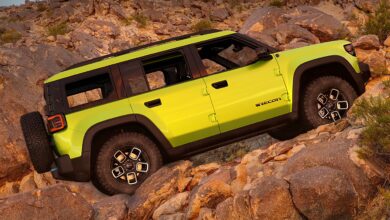U.S. to Ban Chinese Tech in Connected Vehicles Over Security Concerns
Proposed Regulations Target Software And Hardware To Enhance National Security...

The U.S. Commerce Department is set to propose a ban on Chinese software and hardware in connected and autonomous vehicles, citing national security concerns. This significant move reflects ongoing worries about Chinese companies’ data collection regarding U.S. drivers and infrastructure and potential foreign interference in vehicle operations.
According to sources reported by Reuters, the proposed regulation would prevent the import and sale of vehicles from China, including key communications or automated driving system software or hardware. The public will have 30 days to comment on the proposal before any final rules are established. The regulations are expected to apply to software starting in the 2027 model year, with hardware restrictions taking effect in January 2029 or the 2030 model year.

Commerce Secretary Gina Raimondo has previously stated that the risks associated with Chinese technology in U.S. vehicles are significant. In May, she emphasized the potential catastrophic outcomes if millions of connected cars were compromised. President Joe Biden also expressed concern in February, ordering an investigation into whether Chinese imports pose national security risks due to their connected technologies.
This proposal marks a further escalation in U.S. restrictions on Chinese automotive products. Just last week, the Biden administration implemented steep tariff increases on Chinese imports, including a 100% tariff on electric vehicles and additional tariffs on EV batteries and critical minerals.

The move has drawn attention from bipartisan lawmakers who have raised alarms about Chinese companies collecting sensitive data while testing autonomous vehicles in the U.S. The proposed regulations would target Chinese technology and extend to other foreign adversaries, including Russia.
A trade group representing major automakers, such as General Motors (GM), Toyota, and Volkswagen, has warned that changing vehicle hardware and software systems is complex. These systems require extensive pre-production engineering, testing, and validation, making swapping components from different suppliers challenging.
The White House recently approved the final proposal to secure the supply chain for connected vehicles in the U.S. However, the regulations will not apply to agricultural or mining vehicles.

With nearly all newer vehicles on U.S. roads classified as “connected,” the implications of these regulations could significantly impact the automotive landscape. Connected vehicles, which are equipped with onboard hardware for internet access, share data with various devices, making their security a pressing concern.
As the automotive industry continues to evolve, the debate surrounding national security and technology integration in vehicles remains a critical issue for regulators, manufacturers, and consumers alike.
Sources: Reuters, Yahoo! Finance.






5 replies
Loading new replies...
Join the full discussion at the Mopar Insiders Forum →